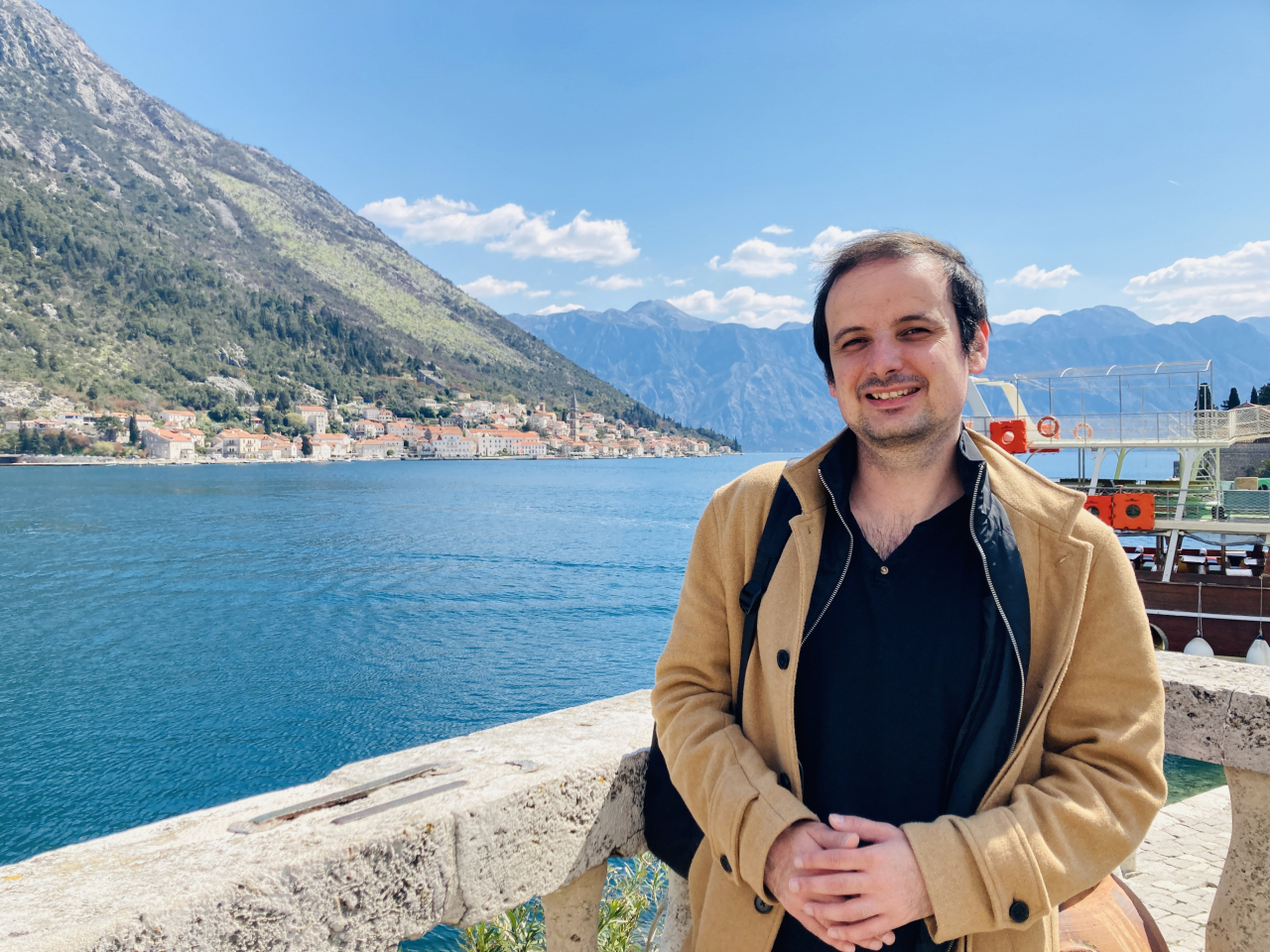 |
Alvaro Trigo |
When Alvaro Trigo Maldonado came to South Korea in 2012, he only spoke basic Korean.
Having studied Arabic and East Asian studies in Spain, Trigo did a master’s degree in Korean history and culture at the Academy of Korean Studies in Seongnam, Gyeonggi Province, at the time, and completed a two-year program at the Literature Translation Institute of Korea. He then did his Ph.D. back in Spain, writing a thesis on Korean novelist Chae Man-sik (1902-1950), and is now teaching Korean literature in the University of Salamanca’s modern languages department.
The first Korean novel he read was “The Song of the Sword” by Kim Hoon, a first-person narrative told in the voice of historical hero Adm. Yi Sun-shin. It was that book and Trigo’s Korean friends that led him to study and translate Korean novels.
“Yi had everything against him -- a bigger enemy navy and even his own king -- but he managed to win big victories with his master strategies and turtle ships. His story was very inspiring, and one could say it represents Korea as it has always struggled between big powers for its own identity and survival,” Trigo said in an interview with The Korea Herald in Seoul.
Trigo has read over 100 modern and contemporary Korean novels since, including “Mujong (The Heartless)” by Yi Gwang-su (1892-1950), and has translated eight of them into Spanish.
In his classes at Salamanca, Trigo teaches about modern, colonial-period novelists and poets such as Yi Sang, Kim So-wol and Chae; postwar novels including “The Square” by Choi In-hun, “Record of a Journey to Mujin” by Kim Seung-ok and “The Road to Sampo” by Hwang Sok-yong; as well as contemporary ones like “The Vegetarian” by Han Kang. He also did a special chapter on female Korean authors such as Pak Kyong-ni, Park Wan-suh and O Jeong-hui.
The number of Korean studies undergraduate students at the University of Salamanca in northwestern Spain is set at 30, the same as for Chinese and Japanese studies, but Korean has been very popular in recent years, according to Trigo. There are 10 students in the master’s program for Korean studies, and Trigo currently advises two Ph.D. students. The University of Salamanca, established in 1218, is one of the oldest universities in continuous operation as well as one of the oldest in Europe.
“When I was doing my master’s in East Asian studies in Salamanca around 2011, most of the content was of Japanese. Not many people knew about Korea,” Trigo said.
“But now, everybody knows something about Korea. Most students enter Korean studies because of their interest in the culture. By the time they finish undergraduate, they have developed interests in literature or other things," he said.
Two of his students graduated from the Literature Translation Institute of Korea, like he did. There is also a huge new market for Korean webtoons, and many companies are asking for webtoon translation, Trigo said.
The professor is in Korea to conduct his Academy of Korean Studies fellowship research on modern Korean literature focusing on Chae Man-sik's "chameleon" character archetype represented in his satirical works.
Trigo has translated eight Korean novels into Spanish so far, including one that is due to be published in September.
They are: “The Hour Between Dog and Wolf” (“La hora entre el perro y el lobo”) by Kim Kyung-uk; “Because I Don’t Like Korea” (“Porque odio Corea”) by Chang Kang-myoung; “Namhansanseong” (“La fortaleza helada”) by Kim Hoon; “At Least We Can Apologize” (“Nos sale bien pedir perdon”) by Lee Ki-ho; a collection of short stories “My Uncle’s Idiot and Other Idiots” (“El idiota de mi tio y otros idiotas”); “Summer Outside” (“Afuera es verano”) by Kim Ae-ran; “River of Fire” (“Rio de fuego”) by Oh Jung-hee; and the collection of short stories “Cursed Bunny” by Bora Chung, the Spanish version of which is set to come out in September.
"Korean Studies Beyond Korea” explores the current landscape of Korean studies through interviews, in-depth analyses and on-the-ground stories told from diverse world areas. Funded by the Korea Press Foundation, this series delves into the challenges and opportunities facing the field as Korea's rise as a cultural powerhouse has drawn interest from scholars, researchers and leaders from around the globe. – Ed.







![[Herald Interview] How Gopizza got big in India](http://res.heraldm.com/phpwas/restmb_idxmake.php?idx=644&simg=/content/image/2024/11/20/20241120050057_0.jpg)